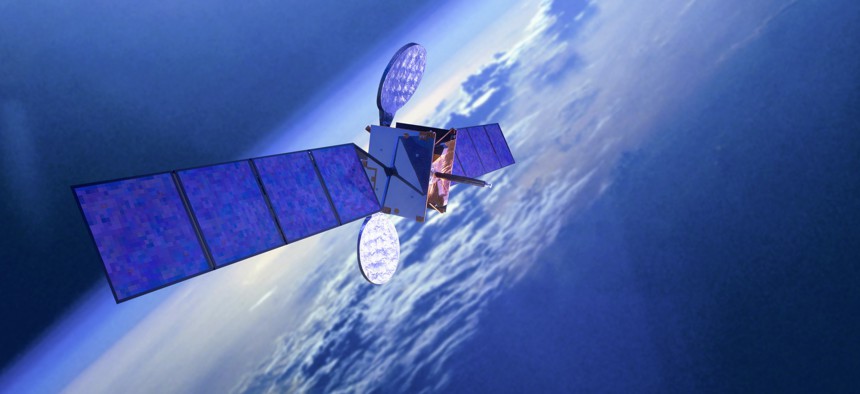NASA chooses 6 firms for satellite communications development funds

Gettyimages.com/Michael Dunning
Awardees are tasked with demonstrating systems and solutions for providing high-rate and high-capacity two-way communications to users.
Six satellite businesses will receive $278.5 million in funding from NASA to develop and demonstrate space communications in near-Earth orbit for supporting future missions.
NASA announced the awards Wednesday for its Communication Services Project, under which the agency seeks to shift away from its own constellation of communication satellites to a commercially-operated network that leans on multiple providers.
Amazon subsidiary Kuiper Government Solutions, Inmarsat Government, SES Government Solutions, Telesat U.S. Services and Viasat have all been tasked to prove their proposed solutions will be capable of providing new high-rate and high-capacity two-way communications to users.
Each company is expected to match or exceed NASA contributions during the five-year development and demonstration period, which brings the total cost-share investment dollar figure to around $1.5 billion.
“We are following the agency’s proven approach developed through commercial cargo and commercial crew services. By using funded Space Act Agreements, we’re able to stimulate industry to demonstrate end-to-end capability leading to operational service,” Eli Naffah, CSP project manager at NASA’s Glenn Research Center, said in a release.
Funded Space Act Agreements such as these are intended for use when an agency sees its objective as unable to be accomplished through either procurement contracts, grants or cooperative agreements.
By 2030, NASA aims to have multiple long-term contracts in place for acquiring services to support near-Earth operations. NASA would then phase out of its owned-and-operated Tracking and Data Relay Satellite network that communicates with spacecraft in orbit.
The year 2030 is also when the International Space Station is currently due to be retired and de-orbited.


